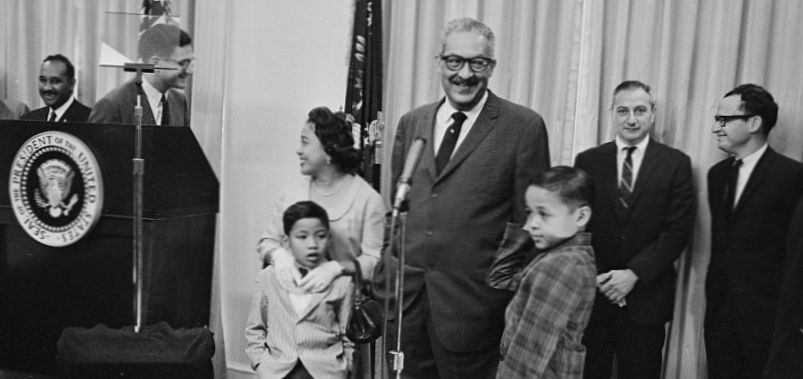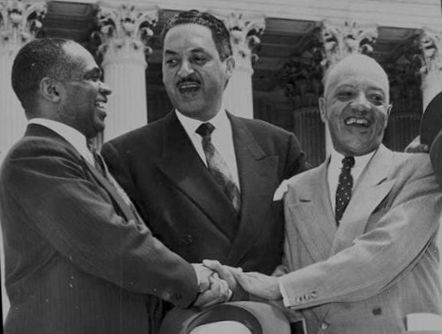Authors:
Historic Era: Era 10: Contemporary United States (1968 to the present)
Historic Theme:
Subject:
Winter 2020 | Volume 64, Issue 1


Authors:
Historic Era: Era 10: Contemporary United States (1968 to the present)
Historic Theme:
Subject:
Winter 2020 | Volume 64, Issue 1
Editor's Note: Juan Williams is a journalist and political analyst for Fox News and writes for The Washington Post, The New York Times, Atlantic Monthly, and other publications. He interviewed Justice Marshall extensively while he was still alive and published a biography, Thurgood Marshall: American Revolutionary, from which this was adapted.
Rumors flew that night. Supreme Court Justice Tom Clark had resigned a few hours earlier. By that Monday evening, Solicitor General Thurgood Marshall and his wife, Cissy, heard that the president was set to name Clark’s replacement on the Court the very next morning.
At the Marshalls’ small green townhouse on G Street in Southwest Washington, D.C., the phone was ringing. Friends, family, and even politicians were calling to see if Thurgood had heard anything about his chances for the job. But all the Marshalls could say was that they had heard rumors.
As Marshall dressed for Clark’s retirement party on that muggy Washington night of June 12, 1967, he looked at his reflection in the mirror. He replayed all the rumors he had heard about why the president was reluctant to appoint him to the high court. Thinking about it, Marshall got grumpy, then angry. His chance to be in the history books as the first black man on the Supreme Court was fading, and he felt abandoned. The word around the capital was that the nomination would be announced tomorrow. Marshall had heard nothing from the White House.

At the retirement party President Johnson was his usual dominating self, alternately bullying and ingratiating himself with both justices and the politicians in the crowd. When Marshall made his way through the faces surrounding Johnson, the president quickly greeted him with a wide smile. The two men loved to drink bourbon and tell stories full of lies. They were the same age and had strong feelings for each other. So it was no surprise when the president threw a long arm around Marshall and briefly pulled him aside. Johnson bluntly told him not to get his hopes up because he was not going to replace Justice Clark.

Marshall played it off with a laugh. Standing to